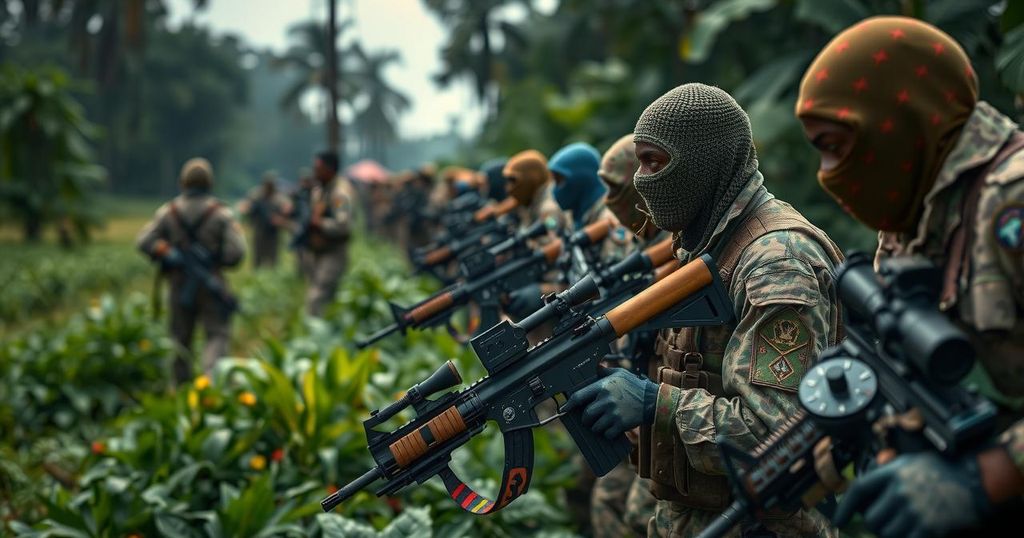Congo’s government accused the M23 rebel group of ethnic cleansing in eastern Congo, citing violence and displacement of locals in Rutshuru and Masisi. The M23, backed by Rwanda, has reinstated local governance in these regions, prompting severe humanitarian concerns. Despite a recent truce, clashes between the rebel group and militias continue, exacerbating the crisis for millions of displaced persons.
The Congolese government has publicly accused the M23 rebel group, which is supported by Rwanda, of committing acts of “ethnic cleansing” in the eastern regions of the country. Interior Minister Jacquemain Shabani highlighted the significant influx of foreign populations into Rutshuru and Masisi in North Kivu province, where local residents have been violently displaced. Shabani stated, “This is what constitutes ethnic cleansing,” following M23’s recent appointment of local administrators in contested territories. The resurgence of M23, emerging from a previous hiatus, adds complexity to an already volatile region, where over 100 armed groups contend for control amid abundant mineral resources. This conflict has contributed to one of the gravest humanitarian crises worldwide, displacing more than seven million individuals, many of whom remain unreachable by aid organizations. M23, primarily composed of ethnic Tutsis, initially gained recognition during its capture of Goma in 2012, further intensifying tensions along the Rwanda-Congo border. Accusations against Rwanda include claims of involvement in war crimes and military support for M23, a charge Rwanda vocally denies, although it acknowledged the presence of troops for national security purposes. A truce established in July, mediated by the United States and Angola, has succeeded in diminishing hostilities between Rwandan and Congolese forces; however, ongoing clashes between M23 and various militias continue to claim innocent lives, such as the recent incident in August that resulted in the death of 16 villagers, undermining peace efforts. Given these unfolding events, the Congolese government’s allegations against M23 reflect a significant escalation in rhetoric and indicate a critical juncture in regional stability. The implications for local populations remain dire, warranting urgent attention from the international community to address the humanitarian consequences and promote lasting peace in the region.
The eastern regions of the Democratic Republic of Congo have long been plagued by conflict involving numerous armed groups vying for control over valuable mineral resources. The resurgence of the M23 rebel group, originally formed in 2012, has reignited violence in the North Kivu province, coinciding with allegations of foreign interference, specifically from Rwanda. Tensions have escalated as local populations face displacement and increasing humanitarian crises, with millions in dire need of assistance. Recent diplomatic efforts, including a ceasefire brokered in July 2023, have sought to mitigate hostilities, yet the situation remains precarious, with ongoing skirmishes between M23 and government forces as well as other militias.
In conclusion, the Congolese government’s accusations of ethnic cleansing against the M23 rebel group, purportedly backed by Rwanda, underscore the severe humanitarian crisis currently unfolding in the eastern regions of the country. With millions displaced and ongoing violence, it is imperative for the international community to engage actively in resolving the conflict and supporting affected populations. The complex interplay of local and regional factors necessitates a coordinated diplomatic effort to achieve peace and stability.
Original Source: apnews.com






